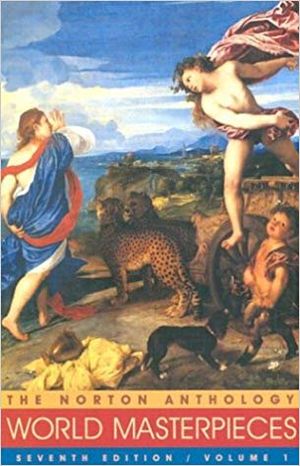ENGL 2111/Fall 2021/Requirements: Difference between revisions
(Updates for LitWiki.) |
(Updated lead.) |
||
| Line 11: | Line 11: | ||
| [[#Projects|Projects]] || style="text-align:center;" | 40% | | [[#Projects|Projects]] || style="text-align:center;" | 40% | ||
|} | |} | ||
{{dc|T}}{{Big|his course is composed of three requirements: reading, quizzes, writing, and | {{dc|T}}{{Big|his course is composed of three requirements: reading, quizzes, writing, and projects. Each requirement will be on-going throughout the semester, will require regular contributions, and may be comprised of various assignments. Projects will be significant contributions to LitWiki study guides for the various literary texts we will study this semester.}} {{More}} | ||
<div class="res-img">[[File:Joseph Mallord William Turner 064.jpg]]</div> | <div class="res-img">[[File:Joseph Mallord William Turner 064.jpg]]</div> | ||
Revision as of 07:06, 2 August 2021
| Requirement | %[1] |
|---|---|
| Reading | 30% |
| Writing | 30% |
| Projects | 40% |
This course is composed of three requirements: reading, quizzes, writing, and projects. Each requirement will be on-going throughout the semester, will require regular contributions, and may be comprised of various assignments. Projects will be significant contributions to LitWiki study guides for the various literary texts we will study this semester.
Reading
Each lesson’s major focus will be reading primary texts (the literature) and secondary texts (critical response to the literature). Reading quizzes will test your knowledge of the materials, focusing on factual details like plot points, rather than interpretative readings. Students should take thorough notes as they read—like character names, plot points, and other details—that will help them on quizzes and later analysis of the texts in their writing. Reading quizzes and in-class assignments cannot be made up for any reason.
Writing
This requirement consists of a journal or log that documents your writing on LitWiki: generally assigned responses to the texts and significant contributions. Your journal should be updated a couple of times a week and should be kept on your LitWiki user page.[2] Often, journal entries will keep track of your writing on discussion boards; this writing will be assigned, but students will be encouraged to research and add content to the study guides that are germane to the class they are taking . Weekly writing assignments will be detailed on the syllabus.
Projects
Students will research and write two significant additions to LitWiki, one due before midterm and on at the end of the semester. These projects will involve contributions to the study guides for the literature we are studying in class. Students will research and write about an aspect of a text we are studying and present their work on LitWiki to improve and expand at least two study guides. Projects could include, but are not limited to:
- textual summary;
- character overview;
- theme explanation;
- symbol/metaphor analysis;
- historical context/timeline;
- critical reaction;
- content expansion and revision;
- or propose another project.
See your class page on LitWiki for specific areas where you can contribute and LitWiki:How to Contribute for detailed instructions.
Required Materials
Our study of World Literature this semester will use either of the following:
- Mack, Maynard, ed. (1999). Norton Anthology of World Masterpieces: Literature of Western Culture Through the Renaissance. The Western Tradition. 1 (Seventh ed.). New York: W. W. Norton.
- Lawall, Sarah, ed. (2003). The Norton Anthology of World Literature: Beginnings to A.D. 100. A (2nd ed.). New York: W. W. Norton.
Both of these books are out-of-print, but you should have no problem acquiring one of them, either through the Amazon affiliate[3] links above or another bookstore. These books contain the specific translations that I will be referencing in-class and on exams, so one of the two texts above is required.[4] While readily available, other translations will just be confusing and cause you unnecessary difficulty.
Your course book(s) or readings should always accompany you to class, as we will make heavy use of them in our daily discussions. Please do not come to class without it: we need the texts for class activities, in-class writing, and all aspects of our study. PDFs must be printed if they are used in class—this includes exams. Failure to do so will earn you an absence .
You should also bring an ink interface of some sort, as well as dead trees on which to take notes. Notes should not only reflect good listening skills, but individual interest in every topic discussed in class.
notes
- ↑ This is the general percentage breakdown for these requirements. As I use a point system for evaluation, the percentages are just an estimate.
- ↑ See Writing Journal for directions on setting up and maintaining your journal.
- ↑ As an Amazon Associate I earn from qualifying purchases; links to Amazon contain my associate ID. All revenue earned goes to support the costs associated with maintaining this web site.
- ↑ Get the cheapest one, as one is no better or worse than the other. And the good news is you can sell the book back to Amazon at the end of the term and make most of your money back.
| 🕒 08-2-2021 | 📆 Make an Appointment | 💬 Ask a Question | 📣 Leave Feedback |


